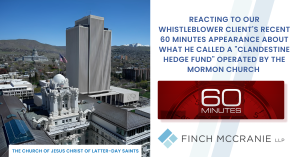In a momentous decision that will impact many future cases, New York Attorney General Eric Schneiderman has just won a major victory in his pioneering tax fraud case against Sprint Nextel Corp.
The Appellate Division unanimously affirmed the trial court’s 2013 ruling (background discussed here) to allow Schneiderman’s first tax enforcement case under the New York False Claims Act to proceed.
The Complaint alleges that Sprint unlawfully failed to collect and pay $130 million in New York sales taxes on a portion of its revenue from fixed monthly access charges. Like the federal False Claims Act, the New York False Claims Act provides for recovery of three times the amount of damages incurred–“treble damages.”
A major aspect of Schneiderman’s victory was that it makes Sprint potentially liable under the New York False Claims Act for tax fraud that preceded the Act’s 2010 amendments to include tax violations. In fact, the court affirmed the trial court’s decision allowing the case to proceed in all respects:
The court properly denied the motion to dismiss the complaint in its entirety. Plaintiffs’ complaint adequately alleges that defendants violated New York’s False Claims Act (State Finance Law § 189[1][g]), Executive Law § 63(12) and Article 28 of the Tax Law by knowingly making false statements material to an obligation to pay sales tax pursuant to Tax Law § 1105(b)(2). Contrary to defendants’ interpretation, the Tax Law provision is not preempted by the Federal Mobile Telecommunications Sourcing Act (4 USC 116 et seq.).
The court also properly rejected defendants’ argument that the New York False Claims Act with respect to statements made under the Tax Law should not be given its stated retroactive [*2]effect. Defendants fail to show that the Act’s sanction of civil penalties, including treble damages, is so punitive in nature and effect as to have its retroactive effect barred by the Ex Post Facto Clause (US Const, art I, § 10).
We once again applaud the efforts of Attorney General Schneiderman and his office to protect the public’s purse though the New York False Claims Act. The case shows the value that tax whistleblowers can bring to stop those who refuse to pay their fair share of the tax burden.
The Attorney General’s announcement is linked here.
Continue reading →
 Whistleblower Lawyer Blog
Whistleblower Lawyer Blog





